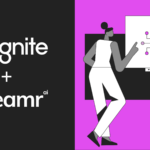Digital advertising tied to generative AI apps is accelerating at a pace few other categories can match. According to Sensor Tower’s State of AI Apps Report 2025, U.S. digital ad spending from leading AI players such as Google Gemini and OpenAI’s ChatGPT reached more than $200 million in the second quarter of 2025—up 121 percent compared to the same period last year.
This wave of investment reflects both intensifying competition among top AI assistants and growing consumer demand. Globally, downloads of generative AI apps more than doubled in the first half of 2025, while in-app purchase revenue more than tripled year-over-year. In response, brands are refining their acquisition strategies, tailoring campaigns to highlight new features and practical applications that resonate with specific audiences.
The report highlights sharp differences in spending across regions. While AI brands pulled back in several European markets—including France, Germany, and Spain—they sharply increased budgets in Brazil, India, and the UK during Q2. These shifts underline how companies are calibrating ad investments to markets showing the strongest adoption curves.
Major players are experimenting with distinct approaches. Microsoft Copilot and Adobe stand out for spreading their budgets broadly across multiple ad channels, while Meta AI, PolyBuzz, and Answer.AI concentrate heavily on YouTube. OpenAI and Google have leaned into precision targeting: ChatGPT recently ran campaigns on Instagram and Facebook promoting free access to ChatGPT Plus for students, while Google emphasized Gemini’s creative problem-solving through LinkedIn, aiming at professional users.
As AI assistants push beyond early adopters, campaigns are shifting toward relatable and lighthearted applications. Ads promoting image generation have proven especially engaging, with ChatGPT featuring animals—cats, dogs, and rabbits—in over half its U.S. creatives in June. Google has promoted practical problem-solving scenarios, such as Gemini helping users decode car warning lights. Microsoft Copilot has positioned itself as a study tool, demonstrating how students can generate quizzes from their notes, while ChatGPT has offered premium subscriptions free to students as a direct incentive.
The influence of AI advertising extends far beyond the tech sector. Companies in education, wellness, and finance are weaving AI into both their products and their messaging. Sensor Tower found that the number of unique ad creatives featuring AI-related language has increased more than tenfold since early 2023—a sign that AI is becoming a mainstream part of how brands communicate with consumers.







Comments
Loading…